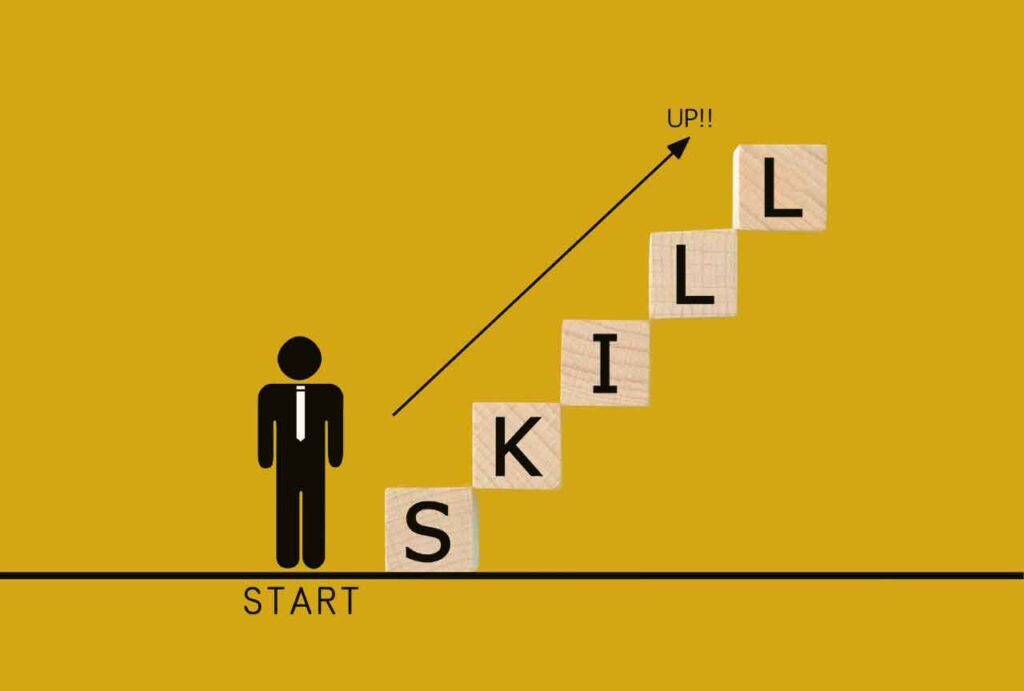Are you stuck in the No-experience loop? And you don’t even have the chance to demonstrate that you’re eager to learn or show that you know how to do something. You’re not alone!. The frustrating reality of “no experience, no job” leaves countless graduates and career starters feeling immobilized. It’s a vicious cycle: you need experience to get a job, but you can’t gain experience without… a job.
Well, through this article you’ll shatter the “no experience” obstacle by using the right strategies, mindset shift, and actionable steps to land that first job and propel your career forward.
No Job Experience? It’s not a Problem:
“No job experience” might feel like a roadblock, but remember, everyone has been there. It’s a shared concern for career newbies, a struggle that shouldn’t define you. Instead, let it empower you to shift your perspective and change your strategies.
Whether it’s to sharpen your knowledge and skills, acquire more in-demand skills and differentiate yourself, or temporarily lower your goals and expectations in order to achieve something bigger in the future.
Here are 5 Practical strategies to break free from the No experience loop and start thriving in your career.
5 Strategies to Break-Free From the No job experience Loop:
1. Differentiate Yourself: Be the Niche Nobody Else Fills
Sure, everyone in your field is competing for the same jobs, but what if you could become the secret weapon they didn’t even know they needed? This is where unique skills and knowledge become your ultimate superpower. Here’s how to do it:
- Step 1: Identify the Difficulty Gap: Research your chosen field and pinpoint the areas where most candidates struggle. Look at job descriptions, industry forums, and career blogs to understand common pain points and challenges employers face. Is it data analysis? Coding a specific program? Mastering a niche software?
- Step 2: Deep Dive and Become the Master: Don’t just dabble; immerse yourself in that tricky skill. Take online courses, attend workshops, and even follow mentors who specialize in it. Become the go-to person for that specific knowledge or skill, a beacon of expertise amidst a sea of generalists.
- Step 3: Tailor Your Story to the Need: When crafting your resume and cover letter, don’t just list your skills; narrate how they solve the employer’s specific problem. Quantify your expertise. Showcase how your deep understanding of that unique skill gap can immediately add value to their team.
Confidence that comes from unique expertise gives you leverage you wouldn’t have with just general skills. So go deep, find your niche, and watch your job search turn into a parade of opportunities waiting to be grabbed.

Also Read: Best 10 Skills To Master in 2024 To Get Noticed
2. Stepping Stone Jobs: Building Momentum From the Ground Up
Imagine yourself climbing a mountain. You wouldn’t start at the base camp and attempt to summit Everest right away, would you? Of course not! You’d acclimate, build your strength, and gradually ascend, tackling smaller peaks before reaching the grand finale. Your job search can be similar.
Why Consider Lower-Level Jobs? It might seem counterintuitive to apply for jobs “below” your qualifications, but hear me out. These entry-level roles, even if seemingly unrelated to your dream job, offer several advantages:
- Foot in the Door: Gain valuable experience in any professional setting, from communication and teamwork to time management and problem-solving. These skills are transferable and highly sought-after by employers.
- Financial Independence: Start earning an income while you continue your job search or pursue further education. This financial security can alleviate stress and allow you to focus on your career goals.
- Network Building: Every workplace is a potential network. Connect with colleagues, supervisors, and even clients. These connections can lead to unexpected opportunities down the line.
- Confidence Boost: Landing a job, any job, can be a major confidence booster. It demonstrates your work ethic, adaptability, and willingness to learn, all attractive qualities to potential employers.
Making Stepping Stone Jobs Work for You:
- Be Strategic: Choose roles with some overlap with your desired field. For example, an aspiring accountant could take a bookkeeping position. Look for opportunities to apply your existing skills and knowledge, even in a different context.
- Highlight Transferable Skills: When crafting your resume and cover letter, emphasize the skills you’re gaining in the lower-level job that are relevant to your long-term goals. Quantify your achievements and results.
- Continuous Learning: Don’t let the lower-level job become your comfort zone. Use your free time to upskill, take online courses, or volunteer in your desired field. Stay proactive and demonstrate your commitment to growth.
Remember, taking a step back isn’t a setback; it’s a strategic move. By gaining experience, building essential skills, and expanding your network, you’re laying the groundwork for a successful career leap in the future. So, embrace the stepping stone jobs, learn from them, and use them as your springboard to reach greater heights!
3. Leveraging Internships and Entry-Level Positions:
Leveraging internships and entry-level positions can be a pivotal strategy to break free from the no-job experience loop. Here’s how to do it properly:
- Research and Target Companies: Research companies in your desired industry that offer internships or entry-level positions. Look for organizations known for providing opportunities to individuals at the beginning of their careers.
- Engage with Career Services: If you’re a student or a career newbie, use your college or university’s career services. They often have resources, job boards, and connections with companies seeking entry-level talent.
- Tap into Personal and Professional Networks: Leverage personal and professional networks to inquire about potential opportunities. Friends, family, professors, or alumni may have insights or connections that can lead to internships or entry-level positions.
- Tailor Your Resume and Cover Letter: Customize your resume and cover letter for each application. Highlight relevant coursework, projects, and any transferable skills that make you a strong candidate.
- Set a Target List of Positions: Identify a list of internships or entry-level positions you’re interested in and qualified for (0 to 2 years of experience required). Apply strategically to these roles, prioritizing those that align most closely with your career goals.
- Follow Up on Applications: After applying, follow up with recruiters or hiring managers to express your continued interest and inquire about the status of your application. This demonstrates initiative and enthusiasm.
- Express Eagerness to Contribute: If you’re invited to interviews, convey your enthusiasm for the opportunity and your eagerness to contribute to the team. Emphasize your willingness to learn and grow within the organization.
Leveraging internships and entry-level positions is not just about gaining experience but also about positioning yourself for future career growth. These opportunities provide a platform to learn, network, and prove your capabilities, laying the foundation for a successful career journey.

Also Read: How Can Short Term Goals Best Lead Towards Accomplishing Long Term Career Goals?
4. Be Noticed and Get Traction:
In a crowded job market, waiting to be discovered passively just won’t cut it. You need to shine a spotlight on your skills, showcase your potential, and generate genuine interest among employers. Here’s how:
- Start a Blog or website: Share your knowledge and insights through blog posts, articles, or even video tutorials. Focus on topics relevant to your desired field and demonstrate your understanding of the industry’s challenges and trends.
- Get Social Media Savvy: Actively engage on platforms like LinkedIn, Twitter, and relevant groups. Share insightful content, participate in discussions, and connect with professionals in your field. Don’t just share; build meaningful connections and establish yourself as a thought leader.
- Contribute to Relevant Publications: Guest blog for industry websites, review publications, or even submit short stories or essays to relevant publications. Getting your work published showcases your expertise and expands your reach.
- Initiate a Personal Project: Take on a personal project that allows you to use your skills and creativity. Build a mobile app, develop a design portfolio, write an ebook, or create a YouTube series showcasing your expertise. Share your project online and actively promote it within relevant communities.
- Volunteer Your Skills: Offer your skills to non-profit organizations or community projects. Not only will you give back, but you’ll also gain valuable experience and build a network of potential connections. Plus, your work might get noticed by professionals in your field, leading to unexpected opportunities.
- Participate in Industry Events: Attend conferences, workshops, and meetups related to your desired field. This is a fantastic way to learn from established professionals, network with potential employers, and showcase your enthusiasm and knowledge.
Remember, consistency is key. Regularly producing valuable content and actively engaging will gradually build your online presence and establish you as a credible voice in your field.
5. Freelancing and Gig Work:
Don’t underestimate the power of freelance! It’s not just about income, it’s a career accelerator on steroids. You might not even need to look for a job later on. Start small, offering short-term gigs on platforms like Upwork or Freelancer.
This lets you test your skills, build a portfolio, and snag those coveted five-star ratings. As you gain confidence and testimonials, you’ll attract bigger projects, potentially even landing long-term contracts or loyal clients. All of this while setting your own hours, working from anywhere with Wi-Fi, and ditching the commute for good.

So forget “no job experience” being a barrier. It’s a Launchpad. Embrace unconventional paths, showcase your unique skills, and let your initiative shine. Network, upskill, and build your online presence.
Remember, every step, every project, every interaction is a brushstroke on your career canvas. So, paint boldly, learn fearlessly, and trust your journey.
This might not be the straightest path, but it’s yours to pave. And when you land that dream job, it won’t feel like luck, but like the inevitable reward for a story you wrote yourself.



